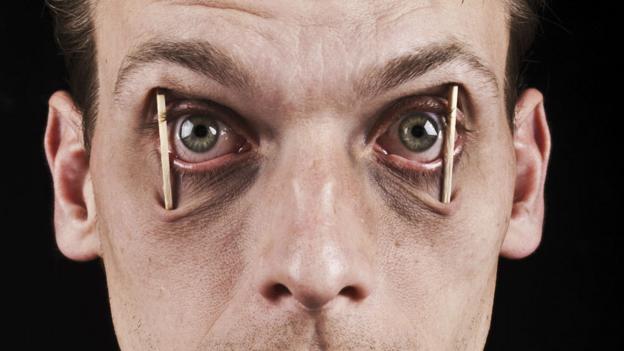In some jobs, working the night shift is unavoidable. There are hospitals to run, planes to fly and shops to keep open as we move towards a 24-hour society. With careful planning and a bit of peace during the daytime, it is possible to work all night and still get eight hours sleep the follow day. Some people will even tell you they don’t mind and that they get used to working in this way. But can their bodies ever become fully accustomed to working to a clock turned upside down? And, more worryingly, is nocturnal labour bad for your health?

There are two elements to these questions. One is about how we feel – our mental wellbeing. People are right to say they get used to shift work. There’s evidence that we cope with subsequent night shifts better than the first of a series, but some people find it much harder than others.
A Canadian study monitored the timing of the sleep, the light levels and the quantity of the sleep hormone melatonin produce by a small group of police officers as they embarked on a week of night shifts. Usually we release melatonin late in the evening when we start feeling tired and ready for bed. If you’ve adapted well to working nights, the peak will move to daytime instead. In this study, those whose pattern of melatonin production showed they had made that adjustment felt happier and more alert, as well as showing faster reaction times – but only 40% managed to make the switch.
In a larger study of more than 3,000 police officers working shifts in Canada and the US, the consequences for those who were unable to adjust were clear, with 40% diagnosed with some kind of sleep disorder.

Even if you do feel OK, there’s also the question of whether your body could be suffering in the long-term. When it comes to assessing the physiological effects, one of the problems is differentiating between the impact that shift work might have on your lifestyle from the direct impact of working during the night. It is harder to eat healthily or to exercise regularly if you’re working shifts. Not only is a salad harder to obtain during the night, but it’s probably not what you feel like when you’re trying to keep yourself awake. This tempts people towards snacks and takeaways. Pizza and curry may be convenient and make you feel better, but of course eating them every night isn’t very healthy. There’s also less opportunity for exercise. While you might manage to drag yourself to the gym at the end of a day’s work, it’s that much harder to do that at the end of your shift if you’re already been up all night and are yearning for a nap.
Airline pilots were found to be happier on the days they were restingcompared with those where they worked early or late shifts. Of course it’s not unusual to prefer your day off to the days you have to get up and go to work, regardless of the time. But the researchers also found that when the pilots worked the early shift they had higher levels of the stress hormone cortisol on waking and produced more cortisol throughout the day. In the long-term, high levels are thought to be associated with an increased the risk of heart problems and high blood pressure.

There could be other consequences too. One study found that a single overnight shift is enough to increase your blood pressure.
Add to this research from the University of Surrey published earlier this year: it demonstrated that after just three days of night shifts, the expression of genes was disrupted, meaning that they began to be active at the wrong time of day. Around 6% of our genes are set to work at specific times, but after just a few days keeping strange hours this pattern was easily disturbed. And a different study found that, after five weeks, people who stayed awake at night and slept during the day showedimpaired glucose regulation and changes in metabolism which could increase the risk of type 2 diabetes and obesity in the long-term.
Of course these studies were all short-term, raising the possibility that perhaps our bodies adjust in the long-term, but results of epidemiological studies conducted over many years are on the whole discouraging. There has been some debate about the impact of shift work on the risk of cardiovascular disease, with many studies finding it raises the risk and a few finding it doesn’t. But the largest synthesis of the research to date, published in 2012, did show an increased risk of heart attacks in people working shifts. Even when lifestyle was controlled for, people doing shifts were still put at higher risk.

But when it comes to metabolic syndrome – an umbrella term including obesity, raised glucose levels, increased blood pressure, and high cholesterol levels – it was lifestyle that seemed to be key. If people worked night shifts, but succeeded in exercising regularly, eating healthily and not smoking, there was less evidence of an increased risk, despite their unsocial hours.
There’s also evidence of increased risk of breast cancer in those who work night shifts, with a greater impact in those who are ‘larks’, who spring out of bed early in the morning, but find it hard to stay up late at night.
What these large scale epidemiological studies can’t tell us is which individuals are most likely to be affected. Is it the case that as with the short-term studies, some people adapt and that those people won’t suffer long-term effects? Or are there risks for everyone working shifts?
Research is complicated by the many forms of shift work people undertake. Working late every so often is likely to have different effects on the body from having the clock turned upside down by working several overnight shifts a week.
Still, until we know more about exactly who is at risk, those who work at night would be wise to take every opportunity they can to eat healthily, to exercise and to look out for early signs of these diseases.
You can hear more Medical Myths on Health Check on the BBC World Service.







